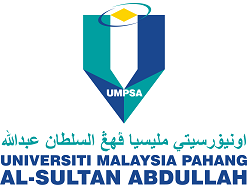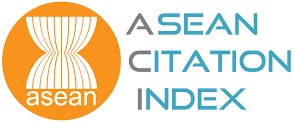The influence of helmet certification in motorcycle helmets protective performance
DOI:
https://doi.org/10.15282/jmes.18.1.2024.1.0776Keywords:
Traumatic Brain Injury, Helmet testing, Peak resultant linear acceleration, Peak resultant angular acceleration, Head injury criterion, Brain injury criterionAbstract
The convenience of online shopping has increased access to a vast array of helmet options and deals for motorcyclists. However, the e-commerce enables an influx of unverified and potentially hazardous helmets lacking the rigorous quality control into the market, hence, placing unaware bargain seekers at risk. The non-certified variants questions in terms of impact protection abilities because they visually look similar to certified helmets. This study compared certified full face and open face helmets against their non-certified counterparts by analysing injury predictor metrics. Using a test rig simulating 5.58 ± 0.29 m/s impacts, an anthropomorphic test device wearing both helmet types and certification statuses measured peak resultant linear and angular accelerations, head injury criterion alongside brain injury criteria scores. The data revealed comparable side and rear impact performance between non-certified and certified helmets. However, frontal impacts exposed deficiencies without certification. The non-certified full face helmets registered over twice the peak linear acceleration of certified while open face types still exceeded certified by 40% in frontal impacts. Additionally, non-certified full face helmets indicated up to 100% predicted concussion risks in side and frontal crashes based on the angular accelerations. The poorer frontal impact and elevated injury odds demonstrate certification's key safety advantages that certification should not be ignored while it still providing more protection than no helmet. However, individual needs to carefully select helmets due to performance differences of helmets. Riders should ultimately prioritize proven protection given the severe consequences of head trauma though non-certified may suffice for some low-risk environments.
References
A. S. McIntosh and A. Lai, “Motorcycle helmets: head and neck dynamics in helmeted and unhelmeted oblique impacts,ˮ Traffic Injury Prevention, vol. 14, no. 8, pp. 835–844, 2013.
N. Bourdet, C. Deck, S. Mojumder, and R. Willinger, “Comparative evaluation of DOT vs. ECE motorcycle helmet test method,ˮ International Research Council on the Biomechanics of Injury (IRCOBI) Conference Proceedings, International Research Council on Biomechanics of Injury, Athens, Greece, pp. 470–479, 2018.
M. Obst, S. Rzepczyk, S. Głowiński, and C. Żaba, “Motorbike protective helmets, construction, testing and its influence on the type and severity of injuries of motorbike accident casualties: A literature review,ˮ Vibrations in Physical Systems, vol. 34, no. 1, pp. 1–20, 2023.
N. J. Mills, S. Wilkes, S. Derler, and A. Flisch, “FEA of oblique impact tests on a motorcycle helmet,” International Journal of Impact Engineering, vol. 36, no. 7, pp. 913–925, 2009.
M. J. Robinson, “Developing novel materials to enhance motorcyclist safety”, Ph.D. Thesis, Cardiff University, United Kingdom, 2019.
Ó. Juste-lorente, M. Maza, A. Piqueras, A. I. Lorente, and F. J. López-Valdés, “Effects of including a penetration test in motorcyclist helmet standards: Influence on helmet stiffness and impact performance,” Applied Sciences, vol. 12, no. 2455, pp. 1–12, 2022.
A. Hamzah, M. T. S. Helmy Syamza, M. A. Ahmad, A. H. Ariffin, M. S. Solah, and N. F. Paiman, “Assessing motorcycle safety helmet standards compliance,” Journal of the Society of Automotive Engineers Malaysia, vol. 3, no. 4, pp. 48–56, 2021.
World Health Organization, “Global status report on road safety 2015,” Geneva, Switzerland, 2015. [Online]. Available: www.who.int
Yusria Darma, “A time series analysis of road traffic fatalities in Malaysia,” Ph.D. Thesis, University of Malaya, Malaysia, 2017.
Jabatan Keselamatan Jalan Raya, “Buku statistik keselamatan jalan raya,” Putrajaya, 2020. [Online]. Available: http://www.jkjr.gov.my/ms/muat-turun/Statistik---Statistic/Buku-Statistik-Keselamatan-Jalan-Raya-kemaskini-12-Feb-2020/lang,ms-my/
Department of Statistics Malaysia, “Press release: statistics on causes of death, Malaysia,” Ministry of Economy, 2017.
M. M. Abdul Manan, T. Jonsson, and A. Várhelyi, “Development of a safety performance function for motorcycle accident fatalities on Malaysian primary roads,” Safety Science, vol. 60, pp. 13–20, 2013.
Z. Sultan, N. I. Ngadiman, F. Dela A. Kadir, N. F. Roslan, and M. Moeinaddini, “Factor analysis of motorcycle crashes in Malaysia,” Planning Malaysia: Journal of the Malaysian Institute of Planners, vol. Special Issue, no. 4, pp. 135–146, 2016.
H. Tan Chor Lip, J. H. Tan, Y. Mohamad, A. C. Ariffin, R. Imran, and T. N. A. Tuan Mat, “Clinical characteristics of 1653 injured motorcyclists and factors that predict mortality from motorcycle crashes in Malaysia,” Chinese Journal of Traumatology - English Edition, vol. 22, no. 2, pp. 69–74, 2019.
L. P. Wong, “Socio-demographic and behavioural characteristics of illegal motorcycle street racers in Malaysia,” BMC Public Health, vol. 11, no. 446, pp. 1–8, 2011.
A. S. Nurullah, P. R. Makol-Abdul, and S. Abdul Rahman, “Gender and motivations for street racing in Malaysia,” Journal of Sociological Research, vol. 3, no. 1, pp. 67–79, 2012.
N. Amit, R. Ismail, N. Ibrahim, Z. Said, and S. E. Ghazali, “Sensation seeking and self-esteem differences among illegal street racers in Malaysia,” Mediterranean Journal of Social Sciences, vol. 7, no. 1, pp. 96–102, 2016.
S. Meng, “Towards improved motorcycle helmet test methods for head impact protection: using experimental and numerical methods,” Ph.D. Thesis, KTH Royal Institute of Technology, Sweden, 2019.
L. Zhang, K. H. Yang, A. I. King, and D. C. Viano, “A new biomechanical predictor for mild traumatic brain injury - A preliminary finding,” Summer Bioengineering Conference, Key Biscayne, Florida, USA, 2003, pp. 137–138, 2003.
Z. Xiao, L. Wang, F. Mo, X. Lv, and C. Yang, “Influences of impact scenarios and vehicle front-end design on head injury risk of motorcyclist,” Accident Analysis and Prevention, vol. 145, no. 105697, pp. 1–11, 2020.
S. Kulanthayan, L. G. See, Y. Kaviyarasu, and M. Z. Nor Afiah, “Prevalence and determinants of non-standard motorcycle safety helmets amongst food delivery workers in Selangor and Kuala Lumpur,” Injury, vol. 43, no. 5, pp. 653–659, 2012.
K. Yellappan, K. K. C. Mani, and S. B. Shamsul, “How safe are standard certified motorcycle safety helmets? Malaysian postal delivery riders scenario,” Traffic Injury Prevention, vol. 20, no. 6, pp. 624–629, 2019.
B. Thorne, “Pendulum based impact testing of athletic helmets using the NOCSAE headform,” Master Thesis, University of Nevada, United States, 2016.
M. H. A. Hassan, “Modelling and analysis of soccer heading and protective headgear to understand and prevent mild traumatic brain injury,” Ph.D. Thesis, Universiti Malaysia Pahang, Malaysia, 2016.
M. Craig, D. Parent, E. Lee, R. Rudd, and E. Takhounts, “Injury criteria for the THOR 50th male ATD,” Report: Human Injury Research Dividion, Washington DC, 2020.
L. F. Gabler, “Development of improved metrics for predicting brain strain in diverse impacts,” Ph.D. Thesis, University of Virginia, United States, 2017.
E. G. Takhounts, M. J. Craig, K. Moorhouse, J. McFadden, and V. Hasija, “Development of brain injury criteria (BrIC),” Stapp Car Crash Journal, vol. 57, pp. 243–266, 2013.
S. Yadukul, P. K. Devadass, and G. Gururaj, “Role of helmet in preventing head injury among two wheeler occupants in fatal road traffic injuries,” Indian Journal of Forensic Medicine and Toxicology, vol. 10, no. 1, pp. 6–10, 2016.
S. Rowson, S. M. Duma, J. G. Beckwith, et al., “Rotational head kinematics in football impacts: An injury risk function for concussion,” Annals of Biomedical Engineering, vol. 40, no. 1, pp. 1–13, 2012.
M. Aare, “Prevention of head injuries-focusing specifically on oblique impacts,” Ph.D. Thesis, KTH Royal Institute of Technology, Sweden, 2003.
P. Halldin, M. Aare, S. Kleiven, and H. von Holst, “Improved helmet design and test methods to reduce rotational induced brain injuries,” Research and Technology Organization (RTO) Specialist Meeting, the NATO”s Research and Technology Organization, 2003.
J. D. Finan, R. W. Nightingale, and B. S. Myers, “The influence of reduced friction on head injury metrics in helmeted head impacts,” Traffic Injury Prevention, vol. 9, no. 5, pp. 483–488, 2008.
K. D. Philips, “Protective headgear and protective armour and a method of modifying protective headgear and protective armour”, U.S. Patent US20040168246A1, 2004
X. Yu, I. Logan, I. de Pedro Sarasola, A. Dasaratha, and M. Ghajari, “The protective performance of modern motorcycle helmets under oblique impacts,” Annals of Biomedical Engineering, vol. 50, no. 11, pp. 1674–1688, 2022.
F. Abayazid, K. Ding, K. Zimmerman, H. Stigson, and M. Ghajari, “A new assessment of bicycle helmets: the brain injury mitigation effects of new technologies in oblique impacts,” Annals of Biomedical Engineering, vol. 49, no. 10, pp. 2716–2733, 2021.
Downloads
Published
Issue
Section
License
Copyright (c) 2024 The Author(s)

This work is licensed under a Creative Commons Attribution-NonCommercial 4.0 International License.






